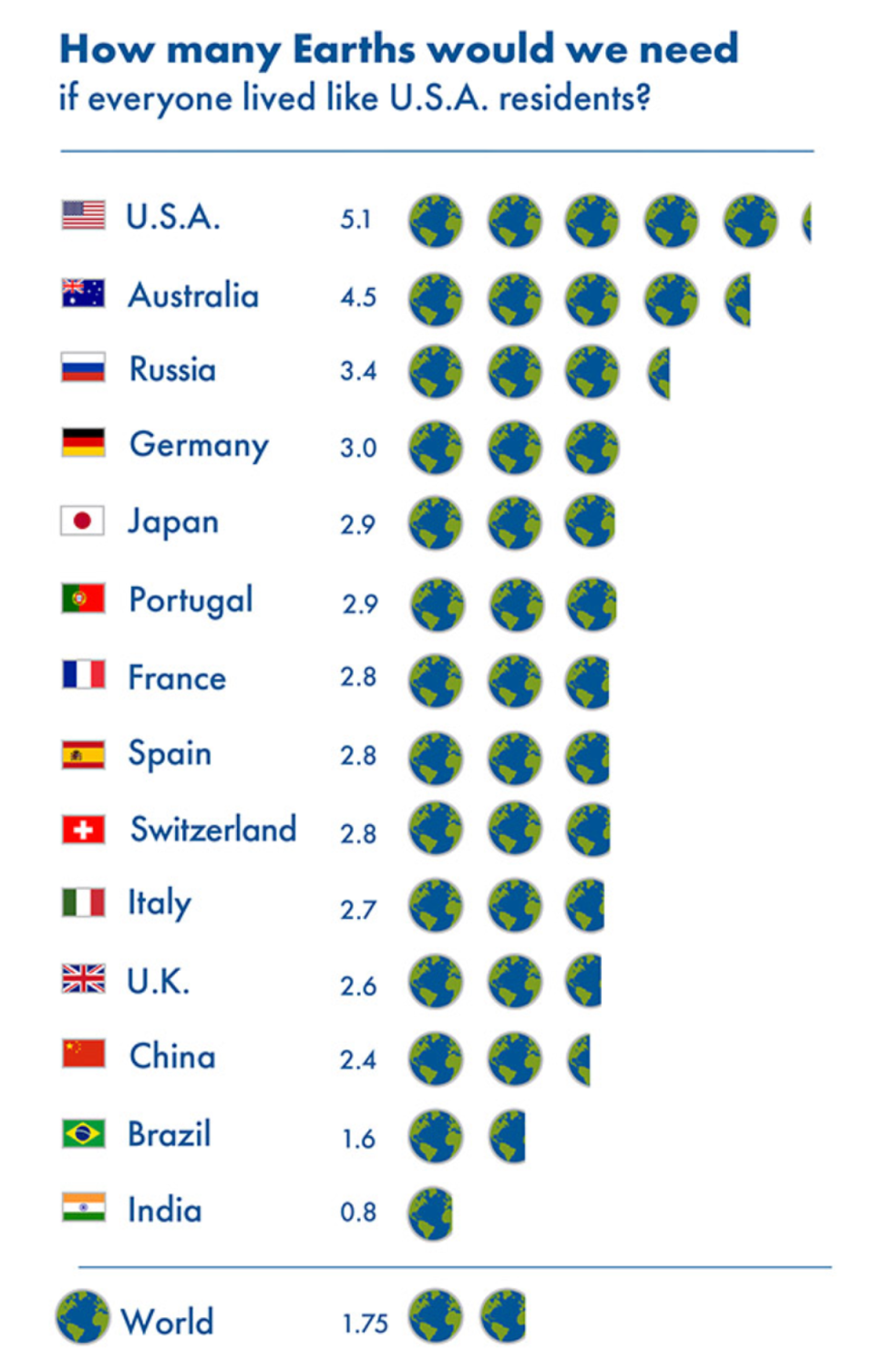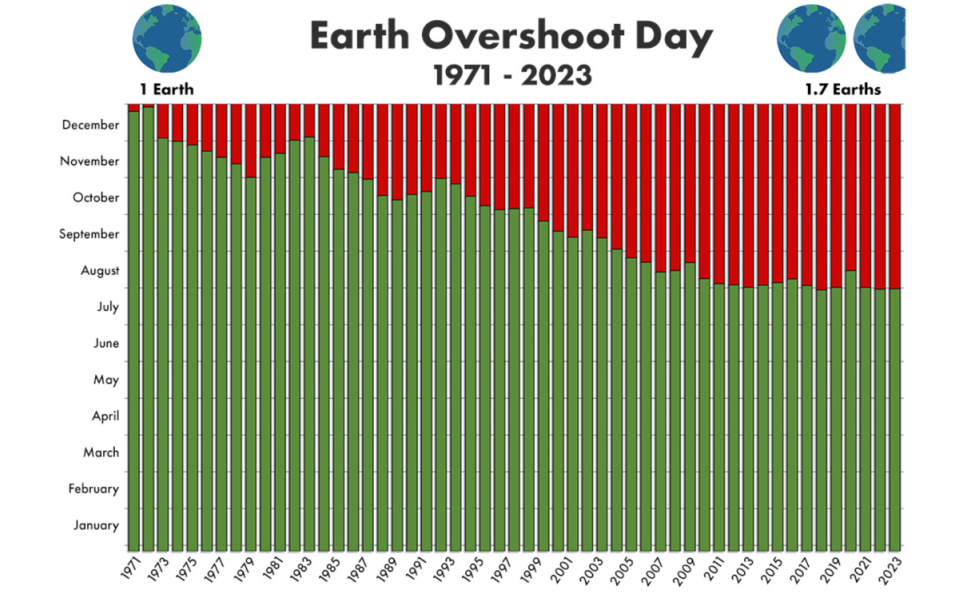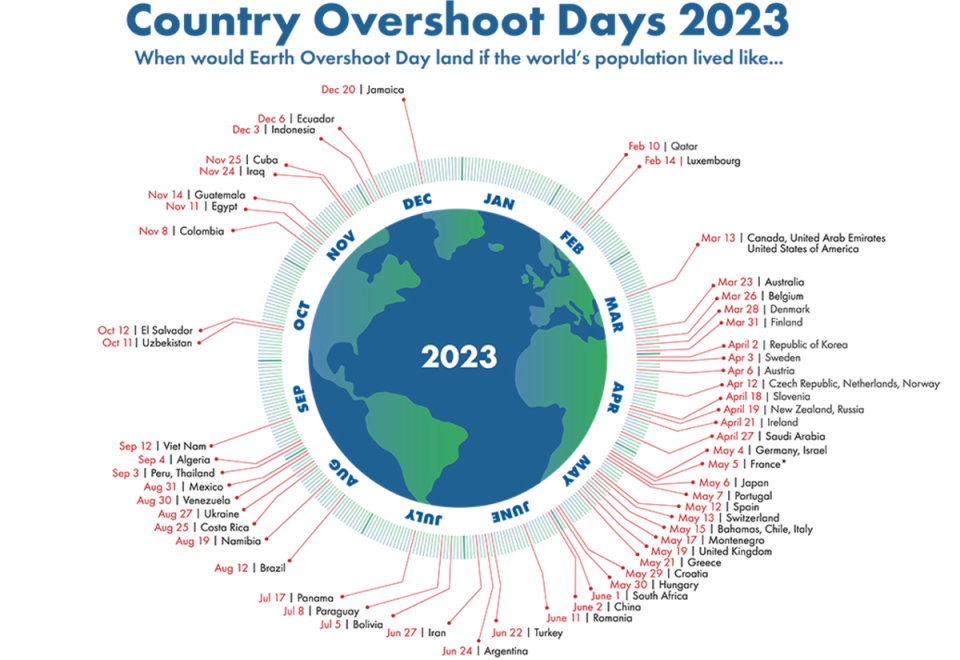Overshoot Day: Countries still burning through Earth’s resources like we have a spare planet, study finds
People are continuing to burn through the planet like we have one to spare, according to research published on Wednesday.
In under eight months, humanity has consumed Earth’s annual budget of carbon, forests, croplands, pasture and fisheries, causing “Overshoot Day” 2023 to be declared on 2nd August. It’s months earlier than the first Overshoot Day - 25 December, 1971.
The slightly good news is that Overshoot Day is one day later than in 2022, although researchers warned that a large number of countries are still chomping through resources at alarming rates.
Overall, the global population is burning through resources equivalent to two planets, researchers found.
“Persistent overshoot leads to ever more prominent symptoms including unusual heat waves, forest fires, droughts, and floods, with the risk of compromising food production,” said Steven Tebbe, CEO of the Global Footprint Network, the international sustainability organisation which provided the estimate.
Driving the deficit is the vast amounts of carbon dioxide (CO2) from fossil fuels which are raising the global temperature.
To achieve the global target of 43 per cent emissions cuts by the end of this decade, Overshoot Day would need to move back 19 days every year until 2030, the research estimated.
What’s more different countries are consuming at wildly different rates: if everyone lived like Americans, for example, we would need five planets. For the UK, it would take roughly 2.5 planets.

By contrast, if every country behaved like India, we would no longer be in natural resource deficit.
At the top of the list of places living well within their budget of natural resources are many developing countries and poorer nations.
The top five are French Guiana, Suriname, Guyana, Gabon and Congo. While French Guiana has become a hub of commercial oil drilling in recent years, the population has a low impact on the environment and the country’s rainforests remain largely intact.
At the other end of the scale are Loas, the Seychelles, Sudan, Romania and Lithuania. Laos has experienced significant forest loss due to illegal logging, agriculture and mining.
Overshoot Day is calculated using UN data to find out each country’s “ecological footprint” - a metric of the supply and demand for plants, livestock, fish, timber and other forest products, along with space for urban infrastructure.


Yet there are an array of solutions that could restore ecological balance, according to Global Footprint Network. If three-quarters of electricity was powered by low-carbon sources, Overshoot Day would move back by 26 days.
Reforesting 350 million hectacres of trees would move the date by eight days while cutting food waste in half would gain 13 days.
National policies rooted in sustainability would also push back Overshoot Day until later in the year. Creating “15-minute cities” - where people live a short walk or cycle ride from everything they need day-to-day - would save 11 days, as would switching to a four-day week.
Retrofitting buildings and constructing multi-family housing would save five days, and replacing one-third of miles travelled by car for public transportation, biking and walking would move the Overshoot back 13 days.

